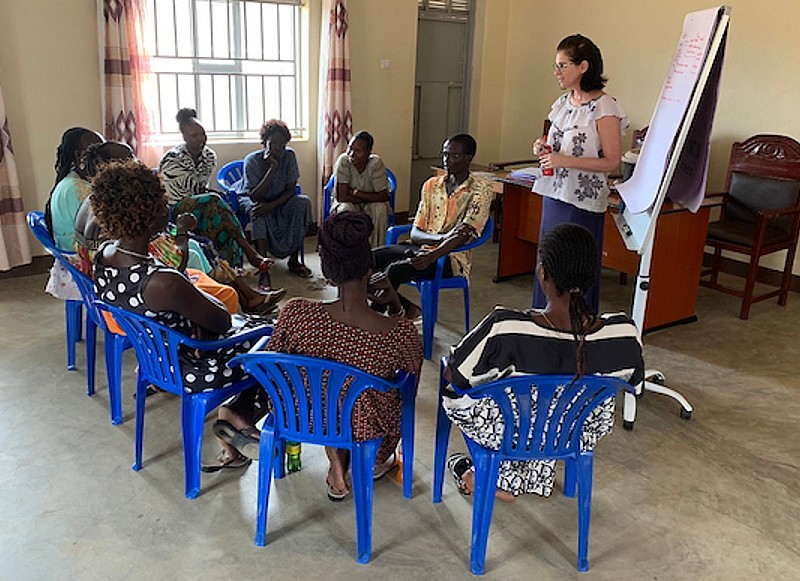 The City of Suwanee has emerged victorious over Sugar Hill in the second annual friendly “Community Food Fight.” This friendly competition pits the two cities against each other to see who can gather the most donations to support the North Gwinnett Co-Op, which provides vital services to the communities of Suwanee, Sugar Hill, and Buford.
The City of Suwanee has emerged victorious over Sugar Hill in the second annual friendly “Community Food Fight.” This friendly competition pits the two cities against each other to see who can gather the most donations to support the North Gwinnett Co-Op, which provides vital services to the communities of Suwanee, Sugar Hill, and Buford.
Building on the success of the 2023 inaugural Food Fight, when Sugar Hill took home the trophy, together in 2024, Suwanee and Sugar Hill’s efforts raised an impressive 17,139 pounds of food and $3,680 in support, demonstrating the power of community solidarity.
While Suwanee celebrates taking home the trophy, this year’s Food Fight is a victory for the entire community. Mayor Jimmy Burnette says: “Everyone who dropped off donations, contributed online, or helped us spread the word made a real difference!”
GGC lecturer returns from Fulbright in Uganda
Dr. MaryBeth Chrostowsky, is back in her Georgia Gwinnett College (GGC) classroom this semester after spending a year in the African nation of Uganda under a prestigious Fulbright Scholar Award.
A senior lecturer in anthropology, Chrostowsky spent the year working with graduate students in the Refugee and Migrant Studies Program at Ugandan Martyrs University in Kampala.”
Chrostowsky split her work weeks in Uganda between teaching and doing fieldwork. She lived on campus in a guesthouse, so her office was near her classroom. She shared her office with other professors, which she enjoyed because they would take walks together some evenings.
One of the biggest challenges was the lack of reliable power and Internet. “It was common for the power to go out. The campus had a generator, but sometimes it would take time for it to turn on, or was out of gas. Even when the Internet was working, the network was weak, making doing a simple Google search or sending an email painfully frustrating, but I adapted to that reality.”
Chrostowsky says reliable Internet and a daily hot shower were probably the things she missed most, but otherwise, a typical day teaching in Uganda was not so different than a day teaching in the U.S.
Her days doing fieldwork were another thing entirely. She conducted her research in the West Nile region of Uganda and used the public bus system to get there. She says most of the buses were old with uncomfortable seats, and the passengers were stuffed into them like sardines with no air conditioning.
What surprised her most was the degree of difference between the U.S. and Ugandan higher education systems. “I understood and expected formal education to vary worldwide because it is informed by cultural practices, values and beliefs, but I did not expect the degree of difference I encountered,” she says.
One big difference was the age of her graduate students because most Ugandans do not have the privilege of going to graduate school immediately after attaining their bachelor’s degree. Due to cultural and social pressure to get married and have children, they wait many years before attending graduate school.
Another difference is that there are no government student loans available in Uganda like there are in the U.S.
“Because of their duties to their families, maybe even to their parents, it takes time to save up for the tuition,” says Chrostowsky. “Uganda is a developing nation, so attending university or grad school is extraordinary. It often takes multiple family members to raise the money needed for school fees.”
Chrostowsky is happy to say she accomplished her three main goals during her residency:
- As a course instructor, sharing her knowledge of U.S. refugee law and the everyday challenges refugees face once they arrive in the U.S.
- Carrying out her research project to examine how kinship functions as a resource for displaced people from the Dinka tribe.
- Creating working relationships with Ugandan scholars.
She says her most significant win was the mentorship she provided to her students – proudly noting she is now the chair for one of her Ugandan student’s master’s research thesis – and her biggest takeaway from the year is that, “We are always learning. Even when we think we understand it all, we don’t.”
Back at GGC, she is sharing her experiences with her students.
“This experience abroad will make you a stronger teacher, researcher and mentor. I wish it for everyone.”










Follow Us